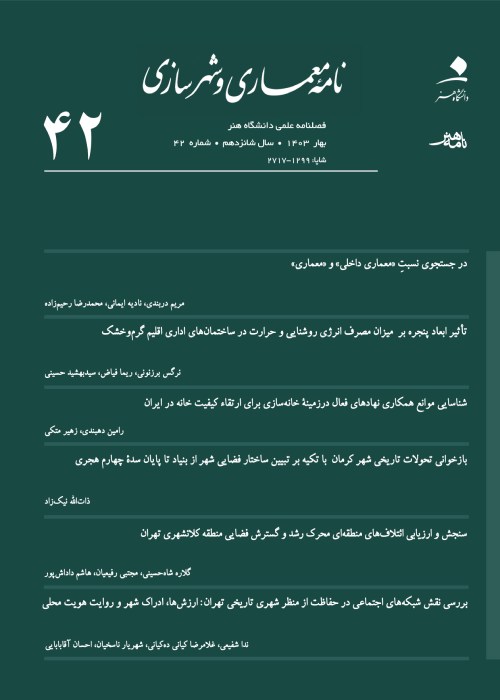Institutional Capacity Analysis of Isfahan Knowledge-Based Urban Development
Author(s):
Article Type:
Research/Original Article (دارای رتبه معتبر)
Abstract:
Nowadays, as cities are the center of development in which knowledge is produced and disseminated, they play a fundamental role in knowledge-based development. Thus, knowledge-based value is the driving force of urban development and is changing the spatial structure of the cities. Knowledge-based urban development (KBUD) has been proposed as an approach for competitiveness and sustainable development of urban economics and their compatibility to the strategies of the knowledge economy through creating opportunities for the production and exchange of knowledge and innovation between citizens. Due to the fact that KBUD activities are related to the stakeholders in the field of learning and innovation, the use of the capacity building and networking tools based on the institutional framework and through the expansion of local stakeholder engagement can underlie and be the driving force of institutional changes for integrated urban development. According to the emergence of city knowledge studies and the lack of systematic development of its theoretical foundations, there has been little research conducted on the success or failure of KBUD policies and their challenges in the cities in developing countries. Recent studies have shown that the most important requirement for the realization of KBUD is institutional development. In order to create interaction and integrated compatibility between urban resources and stakeholders, the need for good governance and strong political leadership is the pioneer in science and technology that addresses the weakness of institutional arrangements and the inadequacy of the governing tools. The most substantial aspect of knowledge-based urban development is the institutional aspect, since it is the regulator of the relationship between the economic, social, and environmental aspects of the city, which is performed based on political will, strategic view, strong relationships, and KBUD stakeholders' confidence. Therefore, this study seeks to identify the factors affecting the institutional capacity of KBUD in Isfahan to provide a proper understanding of the institutional requirements of KBUD in Isfahan. This research has been conducted with an exploratory-operational goal and has used exploratory factor analysis and survey research methods. It is also a quantitative research due to the nature of the required data, and the main tool for data collection is questionnaire. The findings show that eight factors affecting the institutional capacity of KBUD in Isfahan with a total variance of 66.309% provide a good explanation of the topic, the most important factor being an encouraging and supportive environment for knowledge production and use. On the other hand, the institutional capacity status of KBUD in Isfahan, with an overall score of 34.16 is inadequate and in the absence of sufficient political will and deep strategic insight for the realization of KBUD in Isfahan, actors and managers, in particular, are less willing to cooperate because of their lack of trust in each other. Therefore, they cannot provide an encouraging and supportive environment for knowledge production and use, including hard infrastructure (urban spaces suitable for people to attend and chat) and soft infrastructure (providing incentives, job comfort and security).
Keywords:
Language:
Persian
Published:
Journal of Architecture and Urban Planning, Volume:13 Issue: 31, 2021
Pages:
5 to 22
magiran.com/p2337893
دانلود و مطالعه متن این مقاله با یکی از روشهای زیر امکان پذیر است:
اشتراک شخصی
با عضویت و پرداخت آنلاین حق اشتراک یکساله به مبلغ 1,390,000ريال میتوانید 70 عنوان مطلب دانلود کنید!
اشتراک سازمانی
به کتابخانه دانشگاه یا محل کار خود پیشنهاد کنید تا اشتراک سازمانی این پایگاه را برای دسترسی نامحدود همه کاربران به متن مطالب تهیه نمایند!
توجه!
- حق عضویت دریافتی صرف حمایت از نشریات عضو و نگهداری، تکمیل و توسعه مگیران میشود.
- پرداخت حق اشتراک و دانلود مقالات اجازه بازنشر آن در سایر رسانههای چاپی و دیجیتال را به کاربر نمیدهد.
In order to view content subscription is required
Personal subscription
Subscribe magiran.com for 70 € euros via PayPal and download 70 articles during a year.
Organization subscription
Please contact us to subscribe your university or library for unlimited access!



